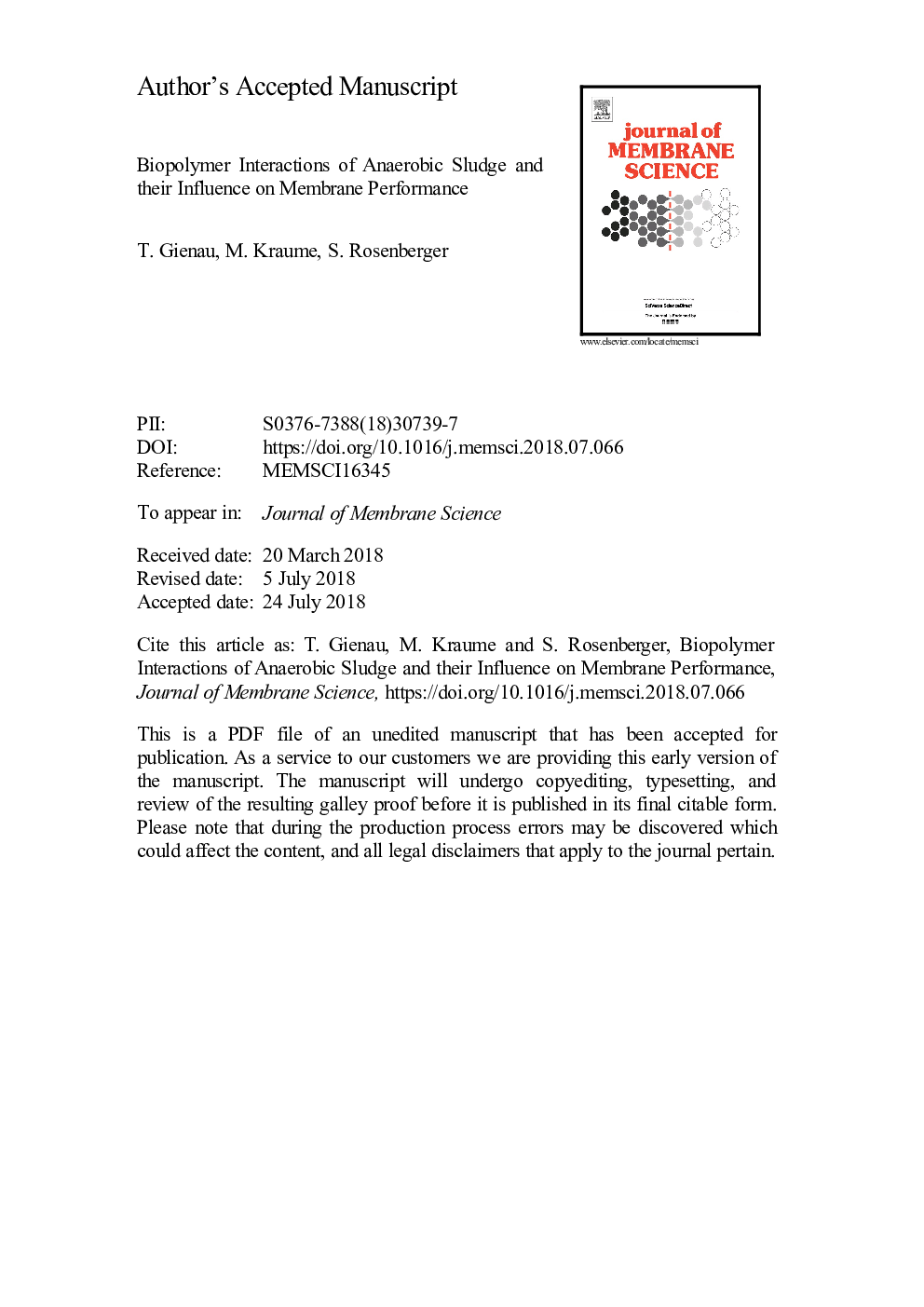| Article ID | Journal | Published Year | Pages | File Type |
|---|---|---|---|---|
| 7019631 | Journal of Membrane Science | 2018 | 35 Pages |
Abstract
The pH dependant interactions of dipolar proteins and mostly negatively charged polysaccharides are well described in literature for pure substances (e.g. bovine serum albumin, gelatine, sodium alginate). In this study, the interactions were transferred to anaerobic sludge supernatant from biogas plants as an example for complex biosuspension matrices. Anaerobic sludge supernatant is often due to downstream processing by e.g. membrane filtration, where high amounts of macromolecular organic substances lead to severe membrane fouling and low permeabilies. Decreasing pH-values shifted the zeta potential exhibited by the proteins, allowing electrostatic protein-polysaccharide interactions and the formation of coacervated complexes. Median particle diameters increased from <â¯1â¯Âµm in the original sample to 5-15â¯Âµm in the acidified sample. The sludge samples showed non-Newtonian, shear-thinning behaviour. Comparing original and acidified samples, ultrafiltration membrane flux increased by a factor of 1.4-2.6 after acidification. Flux improvement was in good accordance with fundamental transport mechanisms reported in literature. In conclusion, it was possible to improve the ultrafiltration performance significantly by transferring well-known pH-dependant biopolymer interactions to complex anaerobic sludge matrices. This can be useful in a number of applications, e.g. wastewater treatment in MBRs, and membrane driven nutrient recovery from biological suspensions like WWTP sludge, manure, or digestate from biogas plants.
Related Topics
Physical Sciences and Engineering
Chemical Engineering
Filtration and Separation
Authors
Tobias Gienau, Matthias Kraume, Sandra Rosenberger,
